The FOSS Force Interview
Software.
The majority of us in today’s work force rely on it to earn our livings. Whether we use it directly while sitting in front of a computer or by tallying a daily quota for auditors to further calculate, in one way or another, software is the key to getting our jobs done.
 Most people rarely give a thought about how the software they use came to be or even what it is. To most, it’s voodoo, magic conjured by wizards on mountaintops, their staffs held high, with bolts of energy breathing life into the encased boxes referred to as computers. But behind the wizard’s benefaction are real living and breathing carbon-based units: People who have the talent, and often times the personality, to make ones and zeros, along with a healthy supply of squiggly things, actually do something.
Most people rarely give a thought about how the software they use came to be or even what it is. To most, it’s voodoo, magic conjured by wizards on mountaintops, their staffs held high, with bolts of energy breathing life into the encased boxes referred to as computers. But behind the wizard’s benefaction are real living and breathing carbon-based units: People who have the talent, and often times the personality, to make ones and zeros, along with a healthy supply of squiggly things, actually do something.
Many of us operate under the assumption that writing software demands a particular personality and skill set. We imagine people who skulk and pace between sittings, swilling Red Bull and muttering to themselves before a frenzy of creative genius leaps from the IDE. Certainly, the mad genius sometimes lurks in front of and often within the code — but mostly not. In real life, people who create software are pretty much the same as you and me: average people, but with the ability to write good and needed software.
Neil Munro is one of those people.
I met Neil while recruiting software people to help clean up the horrid mess that is text to speech (TTS) software in Linux. Actually, he approached me, and in an almost apologetic manner, offered to assist in any way he could. Humbleness is often a trait of software engineers. They severely understate their abilities and will brush off compliments of their skills as “something they picked up” along the way in their time at the terminal.
Calculating beam vectors? From where do you “pick that up?”
While several coders were considering either forking a current but under-supported TTS application or writing one from scratch, Neil went in a different direction. He decided that the actual platform should be the Chrome browser. He would build an extension that worked inside of Chrome. And yes, the platform of choice these days is quickly becoming the browser environment.
So I thought it would be a good idea to check in on him and spend some time talking about who he is, with a bit of in depth discussion about the things he is working on, to include the Chrome extension for text to speech. As a fun thing to do, I often start by asking the people I am interviewing to give me some bullet points about themselves that normally wouldn’t make it into an interview, maybe a bit of the odd or funny. Neil didn’t disappoint:
Ken Starks is the founder of the Helios Project and Reglue, which for 20 years provided refurbished older computers running Linux to disadvantaged school kids, as well as providing digital help for senior citizens, in the Austin, Texas area. He was a columnist for FOSS Force from 2013-2016, and remains part of our family. Follow him on Twitter: @Reglue
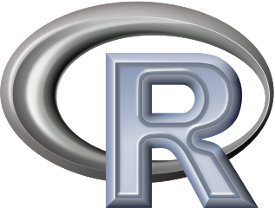



 The only sad part of the story, at least so far, is that the United States has stubbornly dug in her heels. She has chosen to pay homage to the Microsofts and the Apples in our nation. We remain as one of the only nations in the world that openly shuns FOSS in the enterprise. We not only shun it, we work directly against it in the halls of our Senate. That’s due to one simple thing.
The only sad part of the story, at least so far, is that the United States has stubbornly dug in her heels. She has chosen to pay homage to the Microsofts and the Apples in our nation. We remain as one of the only nations in the world that openly shuns FOSS in the enterprise. We not only shun it, we work directly against it in the halls of our Senate. That’s due to one simple thing.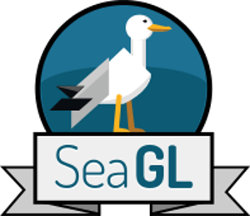

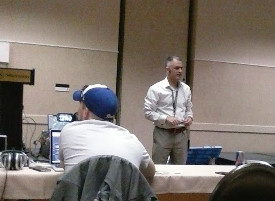

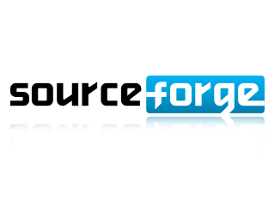
 Newer converts to open source probably don’t know much about the site, but it wasn’t long ago when Linux users were very aware of SourceForge and how to use the service, at least well enough to download software — perhaps more aware than they wanted to be. It was the go-to site when looking for a program not available in a particular distro’s repository. Not anymore. Not for a while. These days, the more important projects have either migrated to GitHub or are hosting their own.
Newer converts to open source probably don’t know much about the site, but it wasn’t long ago when Linux users were very aware of SourceForge and how to use the service, at least well enough to download software — perhaps more aware than they wanted to be. It was the go-to site when looking for a program not available in a particular distro’s repository. Not anymore. Not for a while. These days, the more important projects have either migrated to GitHub or are hosting their own.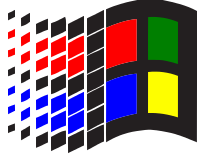
 Maybe there’s another reason for downplaying this release.
Maybe there’s another reason for downplaying this release.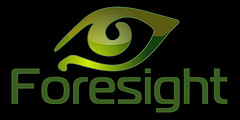

 Most people rarely give a thought about how the software they use came to be or even what it is. To most, it’s voodoo, magic conjured by wizards on mountaintops, their staffs held high, with bolts of energy breathing life into the encased boxes referred to as computers. But behind the wizard’s benefaction are real living and breathing carbon-based units: People who have the talent, and often times the personality, to make ones and zeros, along with a healthy supply of squiggly things, actually do something.
Most people rarely give a thought about how the software they use came to be or even what it is. To most, it’s voodoo, magic conjured by wizards on mountaintops, their staffs held high, with bolts of energy breathing life into the encased boxes referred to as computers. But behind the wizard’s benefaction are real living and breathing carbon-based units: People who have the talent, and often times the personality, to make ones and zeros, along with a healthy supply of squiggly things, actually do something.
 It’s nice to envision the faces of those I am talking to as I write. I think that drives my personal style of writing. I’ve been told that it could be worse.
It’s nice to envision the faces of those I am talking to as I write. I think that drives my personal style of writing. I’ve been told that it could be worse.